College of Law
College of Law hosts groundbreaking conference for emerging researchers
The College of Law (CLAW) at Unisa, through the Department of Public, Constitutional and International Law (PCIL), recently held a groundbreaking conference for young and emerging scholars. The initiative, which was executed in partnership with the Afrikan Peer Growth Network (APGRON), marked the second annual conference of this nature after the inaugural conference in September 2021. Dr Lebogang Morodi, Director of the School of Criminal Justice, delivered the opening address on behalf of the Deanery and emphasised the need for more collegial platforms to capacitate junior and emerging scholars and increase research outputs. Dr Lindelwa Mhlongo, Acting Chair of the PCIL Department, followed with a background of the APGRON initiative and how its collaboration with Unisa is providing a platform for students and emerging researchers to grow, be involved in engaged scholarship and act as a facilitator of mentorship and transformation of the knowledge economy.
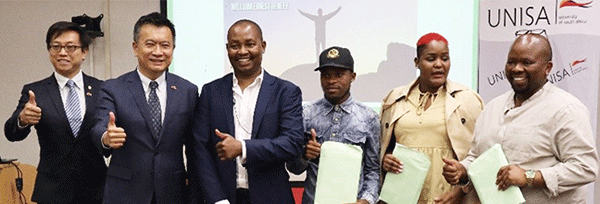
The Taiwanese delegation
Africa's transformative aspirations
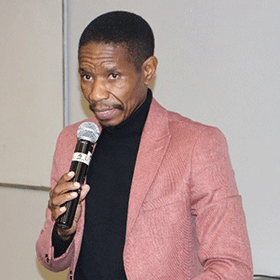
Dr Lebogang Morodi
The conference was dubbed the "UNISA APGRON 2022 Conference", and its theme, Africa's transformative aspirations through the eyes of decoloniality – from rhetoric to action, sought to place transformation and decolonisation at the centre of Africa's development. Over thirty papers were presented at the conference. Speakers came from South Africa, Namibia, Swaziland and as far afield as Malawi, Kenya and India. The meeting was styled as a multi-inter-transdisciplinary conference, with subthemes including areas of the economy, the environment, governance, international relations, energy, mining, military law, aviation and aerospace, human rights and constitutional law.
The hybrid nature of the conference allowed participants to join either physically or online. Over 70 attendees joined the physical event in the hall, while up to 30 participated online. Other stakeholders participating in the event included the Unisa Law Students' Association, Black Forum SA, and the Conflict and Forced Migration Research Institute.
Selling points of the conference
There were three unique selling points for this conference: the first day was dedicated to capacity building for young and emerging scholars; it also featured an awards ceremony for the best papers presented by junior researchers; and two special-issue publications featuring selected quality papers from this conference are already in the pipeline using the South African Yearbook of International Law and the Comparative and International Law Journal of Southern Africa.
The conference's capacity-building phase attendees were drawn from undergraduate students, student assistants, master's and doctoral students, and junior staff members who are still working on their doctorates. Opening this part of the conference, Prof Angelo Dube from the Strategic Projects Office in the Deanery indicated that such engagements were critical in increasing Unisa's publication footprint and cementing Unisa's place in niche areas such as aviation and aerospace, maritime and defence, energy, student support and co-curricular activities, and Feminist, Womanist, Bosadi Theorisations.
Shared experiences
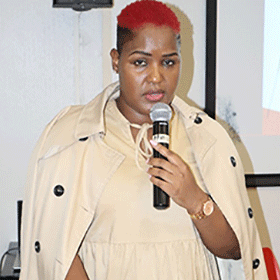
Dr Lindelwa Mhlongo
This part of the conference allowed established researchers and senior professors to engage with emerging and junior scholars and impart skills to them. Several topics were covered, including, the intricacies of drafting a research proposal, how to publish from one's thesis, quality assurance in theses, and proposal development. These topics seemed to resonate with emerging scholars and LLB students who wished they had attended this conference early in the year before embarking on their research papers.
A delegation from the Taiwanese Liaison Office in Pretoria was also in attendance and addressed students, staff members and scholars present. Their presentation zeroed in on opportunities available in Taiwan for academics and students. These range from fully paid student scholarships to stipend-based research fellowships for staff members.
Mental health management
Emerging researchers also had the opportunity to learn from a life coach, Zibuse Kunene, who touched on several points on managing one's life, time, and safeguarding one's emotional and mental health. The address significantly impacted students, as indicated by the number of engaging questions posed to Kunene. Furthermore, Yegis Naidu from the library delivered a presentation on the various research tools at students' disposal.
The second and third days were dedicated to presenting papers by emerging and established researchers. Presenters ranged from ordinary second-year LLB students to seasoned senior professors. This variety added to the richness of the papers presented at this conference and demonstrated that mentorship and collegial and supportive spaces go a long way in creating tomorrow's professors today.
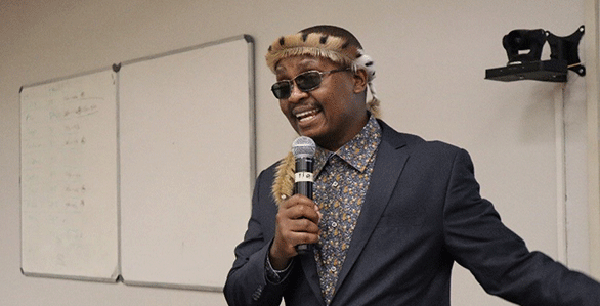
Prof Angelo Dube
Gala dinner
The final day closed off with a gala dinner, where Dr Lebogang Morodi, as the Director of the School of Criminal Justice, provided a recap of the conference and the roles played by both Unisa and APGRON in ensuring that spaces are created for junior scholars to grow and meaningfully engage in scholarship. Morodi thanked the leadership of the university and the College for supporting the initiatives and indicated that in the coming year, the event ought to be even bigger.
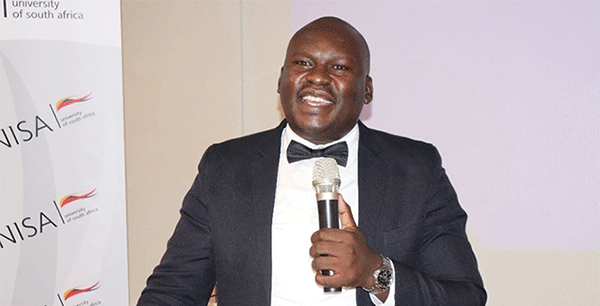
Dr Maropeng Mpya
The guest speaker at the gala dinner, Dr Maropeng Mpya, an Advocate and academic, addressed the attendees on the important topic of transforming minds and ways of doing and being. His address focused on transforming the economy and the need for people to ensure that they leverage the value chain and become active players at different levels of the economic ladder.
Emerging researchers
The gala dinner also provided an opportunity to present awards to emerging researchers who presented riveting papers. Winners of the three categories are:
- Best first-time presenter – Nqobile Mnisi (Unisa)
- Best undergraduate presenter – Teresa Ngileendele (UNAM)
- Best postgraduate presenter – Lorato Phoebe Labuschagne (Unisa)
* By Prof Angelo Dube, Acting Director, School of Law
Publish date: 2023/02/06

 Unisa co-hosts G20 community outreach in the Eastern Cape
Unisa co-hosts G20 community outreach in the Eastern Cape
 Unisans gain membership of prestigious science academies
Unisans gain membership of prestigious science academies
 Advocating for disability transformation through servant leadership
Advocating for disability transformation through servant leadership
 Unisa Press continues to illuminate the publishing space
Unisa Press continues to illuminate the publishing space